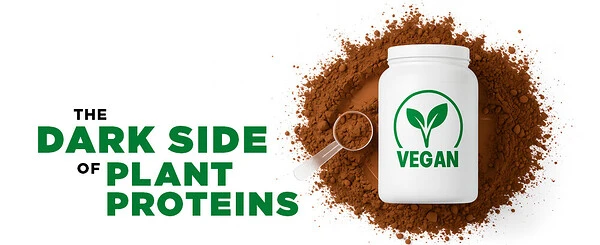Outdated Vitamin D Guidelines: Time for a Change
For years, medical professionals have been relying on antiquated vitamin D guidelines. However, current research has shed light on the optimal vitamin D intake for maintaining good health and preventing diseases.
Accessible Diagnostic Testing
Did you know that it's possible to visit a diagnostic testing center and obtain a wide range of lab tests without a doctor's prescription? Services such as testosterone, thyroid, cortisol, allergy, and prostate tests are readily available. Paternity testing is also an option, for those with particular family - related queries. Well - known centers like Any Lab Test Now, LabCorp, and Quest Diagnostics offer these services, making them valuable resources for biohackers and individuals confident in interpreting their own test results.
The 25 - Hydroxy Vitamin D Test
One test that stands out is the 25 - Hydroxy Vitamin D test. Priced as low as $59, it has the potential to significantly impact your health, provided you understand the implications of the results.
The Flaw in Vitamin D Testing
The problem with current vitamin D testing lies in the standards. According to existing norms, a test might indicate normal vitamin D levels when, in fact, they are subpar. Many researchers argue that the required blood levels of vitamin D are higher than previously thought.
25 - Hydroxy Vitamin D and Its Significance
When undergoing a vitamin D test, a technician will draw blood, send it for analysis, and then provide you with a report. This report typically includes ranges to categorize your vitamin D levels as deficient, insufficient, optimal, or excessive, usually measured in nanograms per milliliter (ng/mL).
Historically, doctors have predominantly associated vitamin D with musculoskeletal health, adopting a "bone - centric" perspective. If an individual had enough vitamin D to prevent brittle bones, their levels were deemed healthy.
However, a comprehensive review published in the journal Nutrients has emphasized that vitamin D's role extends far beyond bone health. It is crucial for brain function, mental well - being, immunity, diabetes prevention, cancer prevention, and cardiovascular health.
The review's authors suggest that while 30 ng/mL is considered a healthy baseline, a range of 40 - 70 ng/mL is more beneficial for significantly reducing the risk of major diseases and premature death. Higher blood levels of vitamin D are associated with:
A 25% lower chance of cancer - related death
Reduced stroke risk
Lower risk of dementia
Decreased autoimmune disease risk
A 77% lower incidence of breast cancer
Increased likelihood of healthy pregnancies
The authors of the review advocate for health experts to update the guidelines to incorporate all the benefits of vitamin D, rather than focusing solely on bone health.
Utilizing the Information
Based on the study, adults are recommended to take 2,000 IU of vitamin D3 daily to reach a blood level of 30 ng/mL. For enhanced protection, a daily intake of 4,000 - 6,000 IU can elevate levels to the more optimal 40 - 70 ng/mL range. These doses are generally safe for most individuals and are considerably higher than the outdated guidelines (600 - 800 IU).
Notably, some individuals may be "non - responders" to vitamin D supplementation and even sunlight exposure. Multiple factors can contribute to this.
To ensure proper vitamin D absorption, even in the face of these challenges, it is advisable to use the microencapsulated form containing Labrasol. Labrasol, a non - ionic surfactant, enhances the absorption and bioavailability of drugs and certain supplements, including vitamin D.
D Fix High Absorption Vitamin D, available on Amazon, contains 5000 IU per softgel and utilizes this form. With daily use, one bottle lasts for three months.
Concerns about Toxicity
It is relatively difficult to overdose on vitamin D, even when taking supplements. Prolonged over - consumption for months would be required. Generally, levels above 125 - 150 ng/mL are considered too high. Ensuring an adequate intake of vitamin K2 can mitigate the risks associated with high - dose vitamin D, as K2 aids in calcium regulation.
Based on the aforementioned study, it appears that all the benefits of vitamin D can be achieved without exceeding 70 ng/mL. If you're curious about your vitamin D levels, consider ordering a test. There's no need for a doctor's prescription.
Reference
- Grant, et al. Vitamin D: Evidence - Based Health Benefits and Recommendations for Population Guidelines, Nutrients 2025 Jan 14;17(2):277. doi: 10.3390/nu17020277.





